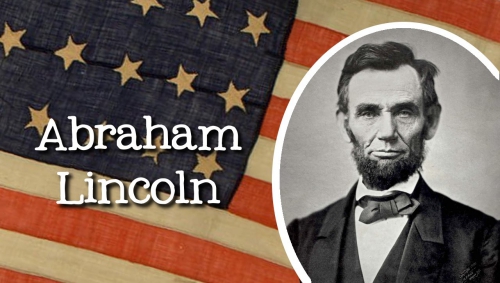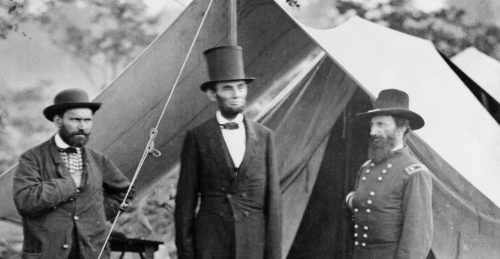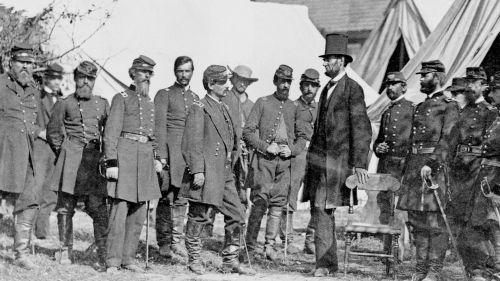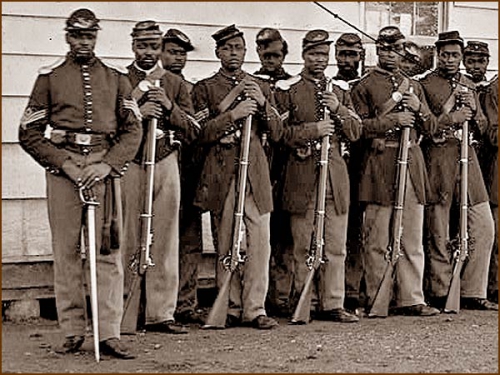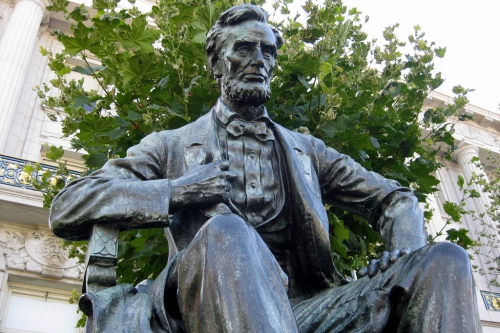The Ancient Greeks knew: “Religion is regarded by the common people as true, by the wise as false, and by rulers as useful.” No less a figure than the late Zbigniew Brzezinski and the CIA made use of this saying by recruiting the Muslim Brotherhood to fight a proxy war against the Soviet Union in Afghanistan, which led to the withdrawal of the Soviets from the Hindu Kush. Since then, the CIA used the mercenaries to fight more proxy wars in the Balkans, Chechnya, and Azerbaijan. Due to the wars of aggression against Iraq, Libya, Syria and Yemen the US and its vassal states created sectarian violence that led to civil wars. Right now, the CIA and the Muslim Brotherhood are present in the form of ISIS in Syria and Iraq.
No one has studied this triad more intensively than F. William Engdahl who is a renowned geopolitical analyst, risk consultant, author, and lecturer. Engdahl was born in Minneapolis/MN, and grew up in Texas. After earning a degree in politics from Princeton University, and graduate study in comparative economics at Stockholm University, he worked as an economist and investigative journalist in the US and Europe. He was named Visiting Professor at Beijing University of Chemical Technology and delivers talks and private seminars around the world on different aspects of economics and politics with the focus on geopolitical events. For the last 30 years, Engdahl has been living in Germany.
He has written numerous best-selling books on oil and geopolitics: The Lost Hegemon: Whom The Gods Would Destroy, Full Spectrum Dominance: Totalitarian Democracy in the New World Order, Seeds of Destruction: The Hidden Agenda of Genetic Manipulation, and not to forget: Target China to name only a few. His books are translated into 14 foreign languages.
His latest book on the role of the NGOs focuses on their involvement in US regime change operations and in steering up fabricated mass protests to facilitate the efforts of the US Empire and the CIA to replace resilient national oriented governments by obedient ones that will execute the Washington agenda. All this happens under the pretext of democracy à la US-American style.
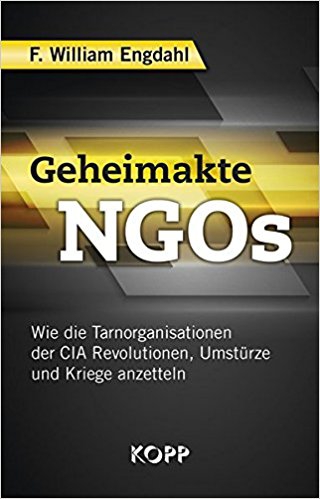
The following interview focuses on Engdahl’s latest book in German Secret files NGOs (Geheimakte NGOs).
Ludwig Watzal: I guess we could agree upon the fact that the CIA is the world’s worst terror organization. After WW II, hardly any coup d’état or organized uprising happened without the helping hand of the CIA. As I understood your book, in the last 25 years, the CIA got quite a few so-called little helpers in the form of NGOs. Please, could you elaborate on that?
William Engdahl: During the Reagan Presidency very damaging scandals were becoming public about CIA dirty operations around the world. Chile, Iran, Guatemala, the top secret MK-Ultra project, the student movement during the Vietnam War to name just a few. To take the spotlight away from them, CIA Director Bill Casey proposed to Reagan creating a “private” NGO, a kind of cut-out that would pose as private, but in reality, as one of its founders the late Allen Weinstein said in a later interview to the Washington Post, “doing what the CIA did, but privately.” This was the creation of the NGO named National Endowment for Democracy in 1983. Soon other Washington-steered NGOs were added like the Freedom House or the Soros Open Society Foundations, the United States Institute of Peace and so forth.
The money was often channeled via USAID of the State Department to hide its origin. Every major regime attack by the US Government since then including the Solidarnosc in Poland, the Yeltsin CIA-backed Russia coup, the 2004 Ukraine Orange Revolution, the 2008 Tibet riots, the Arab Spring of 2011 to today—all have been done by this group of very select “democracy” NGOs. Little wonder that countries like Russia and China or Hungary act to ban them as “undesirable NGOs.”
LW: You quote Allen Weinstein, co-author of the founding act of the NGO National Endowment for Democracy (NED), saying; “Much of what we do today was done 25 years ago by the CIA.” Are the US NGOs such as NED, CIPE, USAID, NDI, not to speak of the Soros network, the fifth column of the CIA?
WE: As I indicated above, I would say so in my opinion. Invariably their NGO agenda fits the given agenda of Washington foreign policy. Coincidence? I don’t believe so.
LW: Your critic focused mainly on a few US NGOs or would you include all non-governmental organizations in general? Aren’t all these NGOs driven by a good mind and noble deeds to spread democracy and freedom around the world?
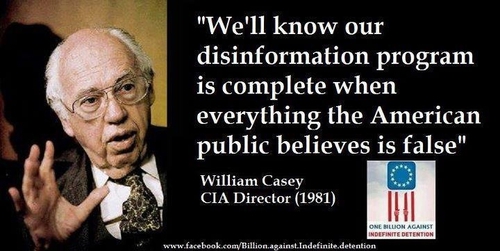
WE: This is the devil in the concept of Bill Casey. Hiding very black dirty anti-democratic CIA operations behind private political NGOs waving the banner of “Human Rights” has been very effective for Washington’s global agenda of toppling un-cooperative regimes around the world. In effect the CIA has weaponized human rights. Curiously useful regimes for Washington such as Saudi Arabia go unbothered by calls for democracy. Their oil billions finance Washington’s global terrorism agenda.
Take the recent case of the fake democracy White Helmets NGO in Syria doing propaganda in intimate cooperation with ISIS, to justify the US-led war against the duly elected Assad regime. White Helmets get money reportedly from Soros Foundations, from the US and UK governments and were created by a former British Army Intelligence officer James Le Mesurier. Their atrocity videos have repeatedly been exposed as fake, staged by actors. Their alleged Sarin gas video showing unprotected White Helmets “first responders” handling alleged Sarin gas victims with no protective HAZMAT protection is a joke, a fake as was exposed widely after by a number of HAZMAT Sarin gas experts.
The Washington–or EU in some cases—political NGOs are effective because they can attract many innocent good-willed people. I recently received a very touching personal letter from a European Medical Doctor who had been 18 months working with the best humanitarian intention with Doctors without Borders in South Sudan before their US-backed independence. She was so grateful after reading my NGO book as she could understand all the seeming irrational directions their American Doctors Without Borders leader gave the staff. She quit because of burnout and now said she understands why. Honest doctors were being used by Washington for secret political agendas. South Sudan was target because China was receiving a major share of her oil from there via Khartoum.
Of course, not all NGOs are doing the work of the CIA. I focus on the ones with a hidden political agenda, who, as I describe in the book, have weaponized human rights and the word democracy for devious ends.
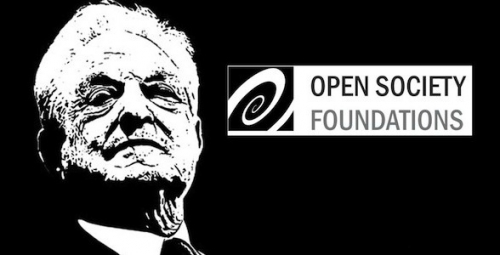
LW: In 1984, the hedge fund-Billionaire George Soros, established in Budapest the Soros Foundation. His first target was Poland. Pope John Paul II and US President Ronald Reagan met in 1982 at the Vatican to discuss the destabilization of the Communist Bloc. In this endeavor, has there also been an involvement of the Soros Foundation?
WE: The Soros Foundation established the Stefan Batory Foundation in Warsaw in 1988 to train activists to ultimately topple the Communist regime. They played a major role “building democracy” and immediately after the collapse in Poland of the government of General Czesław Kiszczak in August, 1989. Soros brought Harvard University “Shock Therapy” economist Jeffrey Sachs into Poland to push privatization of state enterprises, create a hyperinflation and open choice Polish state assets for auction to western investors like friends of Soros for pennies or then, for pfennig.
LW: The two chapters on the plundering of the former Soviet Union by the CIA, Soros and his Harvard Boys in cooperation with the Yeltsin clan and former KGB official is quite shocking. Please, elaborate on this Mafia-like undertaking.
WE: I have to refer readers to the book as the treatment has been cross-checked and is exhaustive. In brief, the CIA under the direction of then-President George H.W. Bush managed to corrupt several very high-ranking KGB generals who recruited a network of young Komsomol or Communist Union of Youth proteges such as Boris Berezovsky and Mikhail Khodorkovsky to become their hand-picked “oligarchs” to plunder the State assets for pennies compared to their true worth. This was the infamous “voucher” scandal that valued the entire state assets including oil and gas, machine-making companies, high-tech, all at a little under $16 billion. They literally raped Russia for personal gain. And the CIA and its network of Western banks such as Riggs Bank in Washington allowed them to launder the money out of Russia. Even I was shocked to verify the details. It was criminal. Yeltsin was their boy. Some said so long as his supply of good Vodka was guaranteed he would do anything Soros and his Harvard economists demanded.
The interesting point to note is that President G.H.W. Bush, former director of the CIA, ordered three simultaneous NGO destabilizations in the same year, 1989. The three were Russia, China in Tiananmen Square and Yugoslavia. The book documents this in great detail.
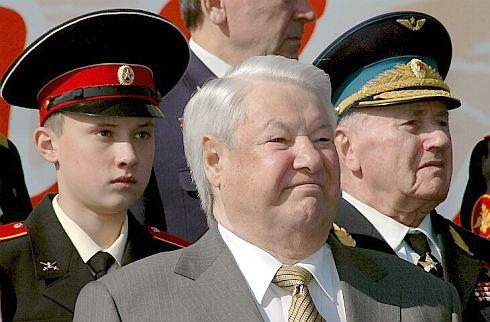
LW: After Vladimir Putin succeeded Boris Yeltsin as Russia’s President, he immediately stopped the robbing of Russia. Do you think that could be one cause why the political class in Washington hates and demonizes him to such an extent, which is irrational?
WE: Putin came from a Russian nationalist faction (as opposed to what were called cosmopolitan or internationalist faction) of the KGB and its successor. They knew they had to act with stealth until their grip was secure in 2000 when Yeltsin was forced to quietly “retire” or face revelations and Yeltsin was convinced to name Putin acting President.
There has been an undeclared war against a stable nation-state in Russia since well before 1917. The founder of Stratfor, George Friedman, one of the better informed American analysts of geopolitics and former consultant to the Pentagon and CIA among others, recently gave an interview after the CIA Ukraine “coup d’ etat” which Friedman called “the most blatant coup in US history.” That if you recall was the one where Viktoria Nuland as US Assistant Secretary of State went to Kiev and handed out candy bars to the protesters in Maidan Square and telephoned her contempt for the EU to the US Ambassador in Kiev.
Friedman noted what I have documented in my various other books such as Mit der Ölwaffe zur Weltmacht, that the foreign policy of the United States of America for at least the past century as the USA emerged on the decline of the British Empire, the US foreign policy priority has been to prevent at all costs the merging of economic interests and cooperation between especially Germany and Russia. The world has undergone two world wars because of this unfortunate geopolitical dogma of US foreign policy, a dogma taken over from the British and from the father of British geopolitics, Sir Halford Mackinder.
Washington hates and demonizes Putin for the reason he has moved deliberately to stabilize Russia as a great nation, which it truly is as I can attest from almost 25 years of personal experience. And as a result of Washington’s demonization, Putin’s influence in the world seems only to grow stronger—first with China, then Eurasia nations, Africa, the Middle East, Asia, even the Philippines and Latin America. The world is becoming fed up with the endless agenda of overt and covert USA wars everywhere. We need to look closely behind the Trump words and very soon we find the same old, degenerate oligarchs and their so-called deep-state of unelected bureaucrats at work.
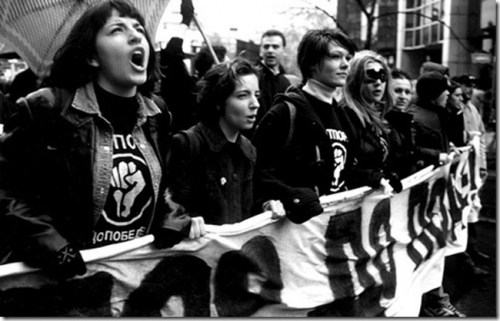
LW: The dismantling of Yugoslavia was a catastrophe. The Germans under the chancellorship of Gerhard Schroeder and his infamous foreign minister Joschka Fischer joined forces with Clinton to overthrow the Serbian President Slobodan Milosevic. In this coup-like operation, were there also NGOs involved? And what was their strategy?
WE: Yes. Follow the subsequent career of Mr. Fischer. A street thug from the 1968 Frankfurt protests becomes crowned by the USA and its mainstream media as a statesman, apparently the reward for delivering the Green Party vote for bombing Yugoslavia in 1999. After office, Fischer got an honorary teaching post at my Alma Mater, Princeton. Later George Soros invites Mr Fischer on to his new European council on Foreign Relations think tank.
In terms of the toppling of Slobodan Milosevic, the US government and its select NGOs including NED and Soros foundations, organized, financed, and trained key student leaders and others in a successful coup, under the name Otpor! (Resistance!), with the now -ubiquitous logo of the threatening clenched fist. Serbian translations of Gene Sharp’s writings on nonviolent action were used and the key leaders were personally trained by Sharp’s associate US Army colonel Robert Helvey in secret meeting places to avoid police. Otpor! got by some estimates as much as $30 million from U.S. government-linked organizations such as the National Endowment for Democracy (NED), International Republican Institute (IRI), and US Agency for International Development (USAID). The destruction of Yugoslavia was orchestrated since the 1980’s by Washington, first Bush Sr. then Clinton. The aim was to create a war in Europe to justify the continued presence of a NATO whose raison d’être after the collapse of the Soviet Union was hard to justify to American taxpayers or to the Europeans who were planning an independent European Defense Pillar apart from NATO. For Washington and the influential US military industrial complex such independence was tabu!. The second aim was to establish a huge US military presence later in Kosovo called Camp Bond Steel.
LW: When the Arab masses went into the streets of Tunis, Cairo and Tripoli, the Western media, and political class were thrilled. Finally, democracy, freedom, and human rights found their way into the Arab world. Were these uprisings spontaneous or were they organized and orchestrated from outside forces?
WE: The entire Arab Spring was secretly planned and financed by Washington and US-financed NGOs. Then-Secretary of State Hillary Clinton was a key figure along with her bizarre Muslim Brotherhood assistant Huma Abedin. The RAND Corporation, which is a Pentagon think tank responsible for developing the technique of mob “swarming” like bees, as a way using facebook and social media to steer protests, played a key role.
The protest student groups in Egypt were US-trained, again using translations of Gene Sharp, they were brought to Europe to be secretly trained by the leaders of Otpor!.
In the case of Libya’s Qaddafi, a more urgent regime change was deemed necessary as the now-famous DCLeaks and Wikileaks emails of Hillary to her private adviser Sidney Blumenthal reveal. Qaddafi, who contrary to his demonized image had built up Libya with the highest living standard in all Africa, was about to unveil creation of an alliance of Muslim central banks and introduction of a Gold Dinar currency for oil sales not US dollars. He was doing so together with Ben Ali of Tunisia and Mubarak in Egypt. As Hillary wrote to Blumenthal, that had to be blocked by whatever means. The means to “block” were the illegal bombing of Libya and the assassination of Qaddafi and turning Libya into a field of rubble. The original Pentagon-CIA-State Department plan called for the immediate toppling of another thorn in Washington’s side immediately after Qaddafi, that was Bashar al Assad in Syria. That has not worked out well for the Washington planners and a great human tragedy unnecessarily has grown out of 6 years of what essentially is a US-led war there.
LW: In the old days, the conquerors brought in its wake the missionaries. Today, the Western neo-colonial powers come with hundreds of NGOs who teach the indigenous population how Western democracy is supposed to function. Do you think the NGOs serve the interest of these people? What about the German NGOs who especially carry a lot of ideological ballast, for example, in the form of gender mainstreaming with them? What do you make of that?
WE: I think your analogy with the “Christian” missionaries of the past and the “Human Rights” or “democracy” NGOs today is very fitting. I am not competent to comment on the activities of various German NGOs. My main focus is Washington, the hegemonic power today and source of so much that is destructive, unfortunately.
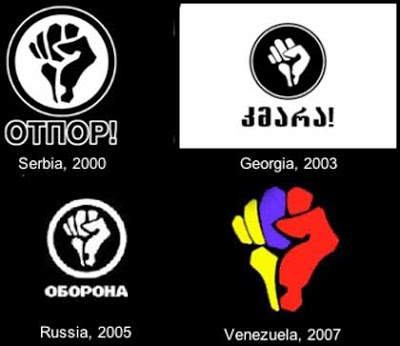
LW: At the beginning and at the end of your book you refer to George Orwell’s double think that means “War is Peace, Freedom is Slavery, Ignorance is Strength.” Do we live in times where the original meanings of words become different contents? Do the US Empire and its vassal states wage war in the name of democracy and destroy the nation states with the same democratic rhetoric?
WE: This is why I found the Orwell quote so appropriate. His book 1984 in many ways is a description of what has been allowed to happen to our western democracies, especially in Britain and the USA.
LW: If you could give the NGOs a piece of advice, what would you tell them?
WE: For the honest persons who may have got caught up in nice rhetoric about values, human rights and such, I would suggest looking more closely at the money trail feeding your given NGO. For the NED or Soros foundations I would suggest they would all do mankind a favor by shutting their doors permanently. That you allow nations and individuals to decide their own sovereign future without your unwanted meddling. I would say, to paraphrase Cromwell to the British Long Parliament, ”You human rights NGOs, Go! You have sat too long here for any good you have been doing. Depart, I say, and let us have done with you. In the name of God, go!”
LW: Mr. Engdahl, thanks for the interview.
WE: Thank you for your interest and excellent questions.



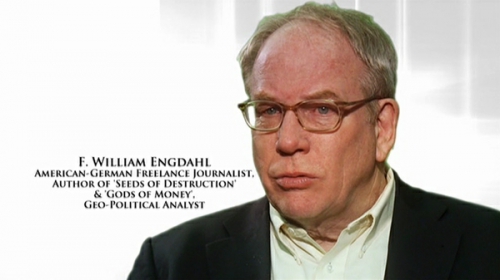

 del.icio.us
del.icio.us
 Digg
Digg